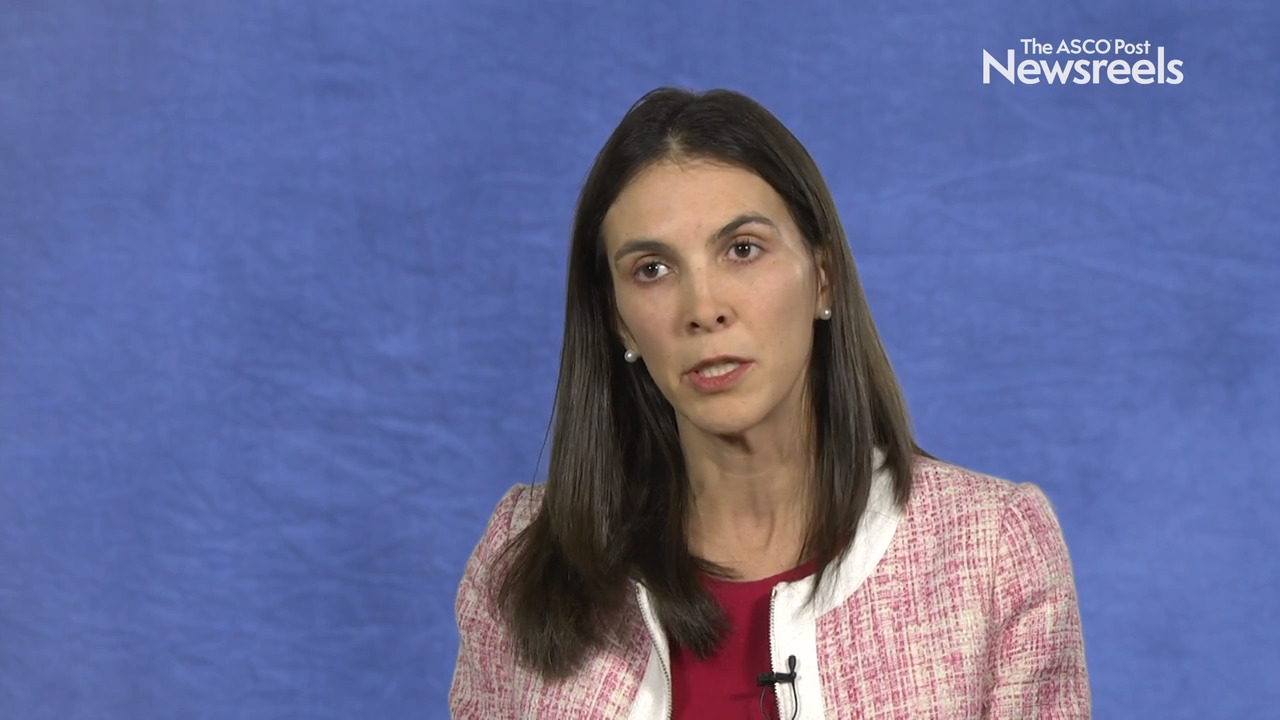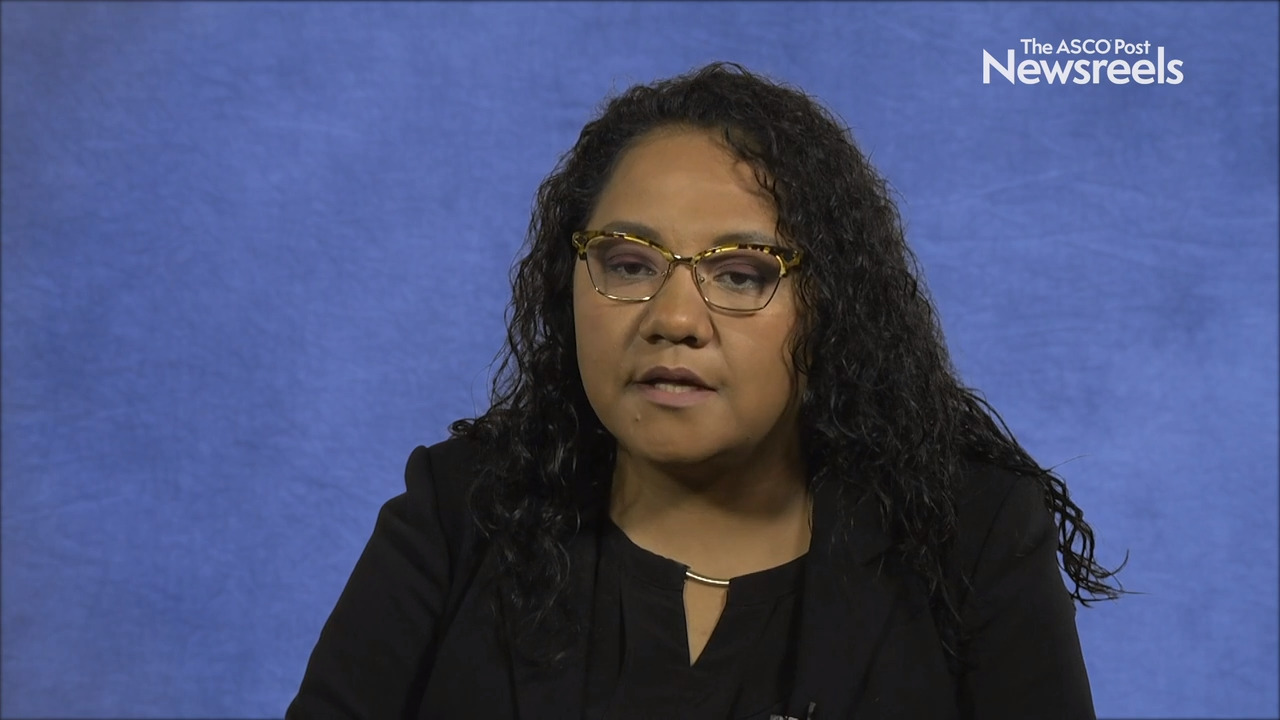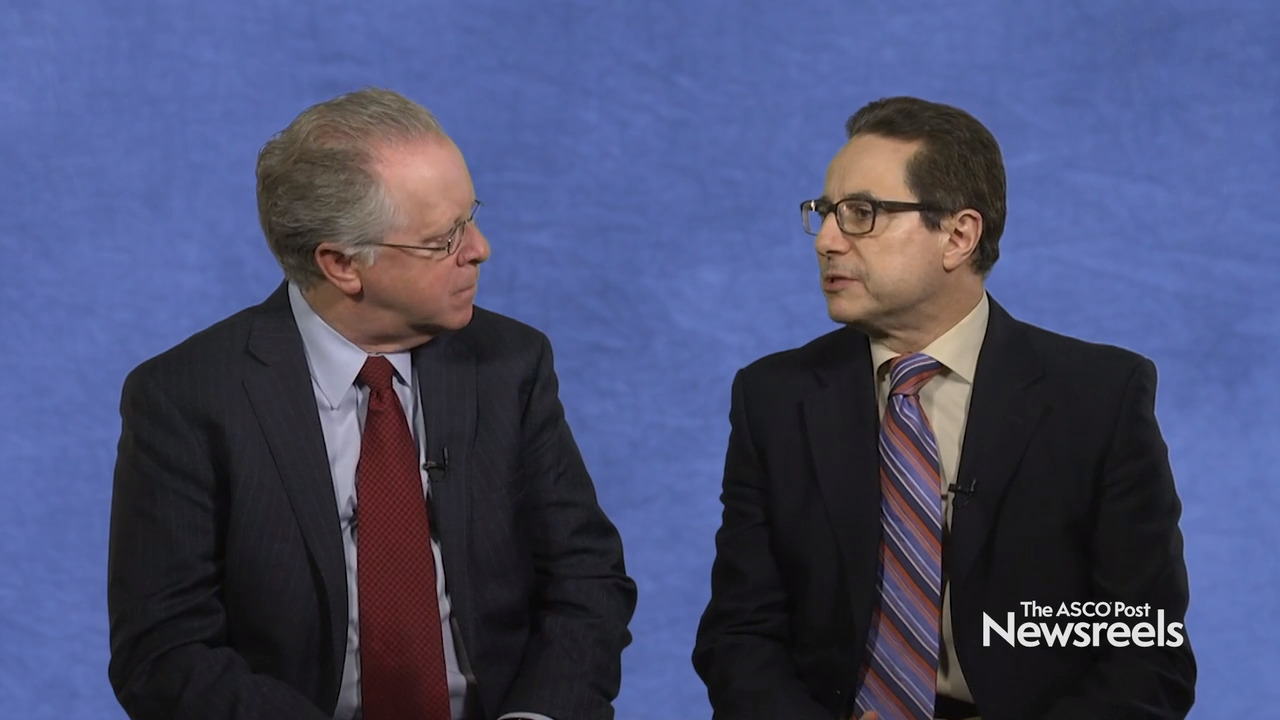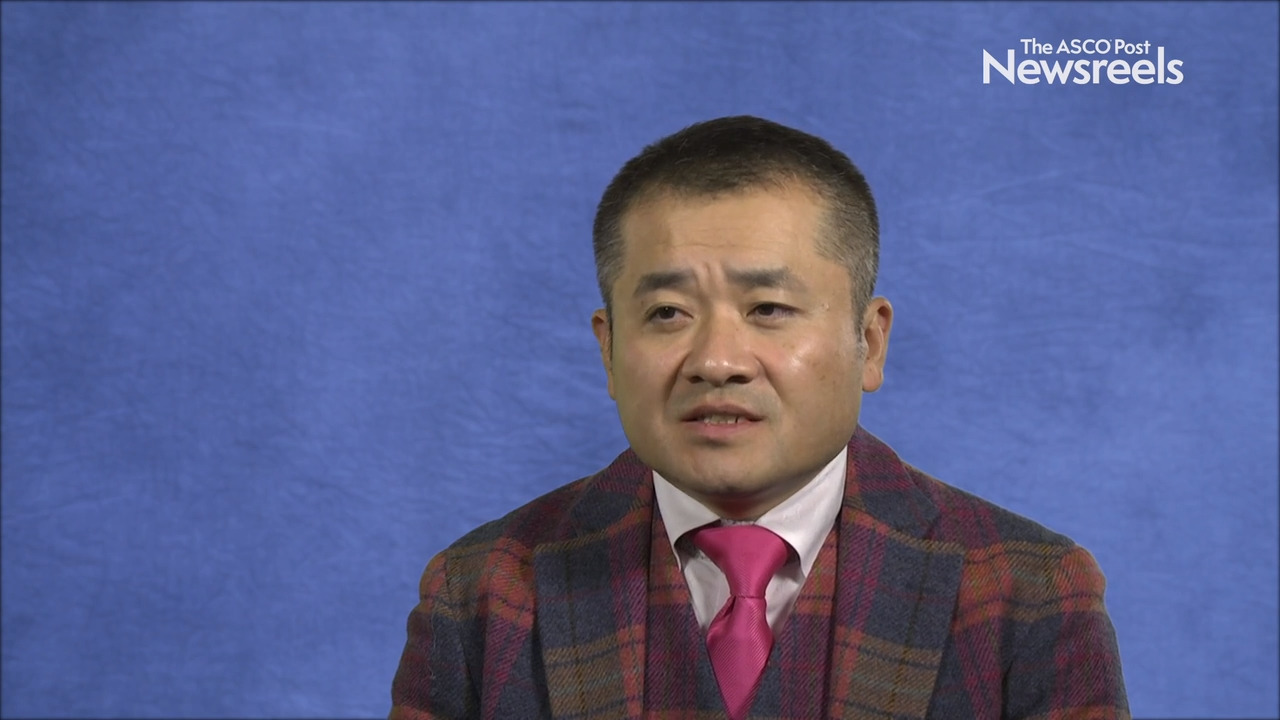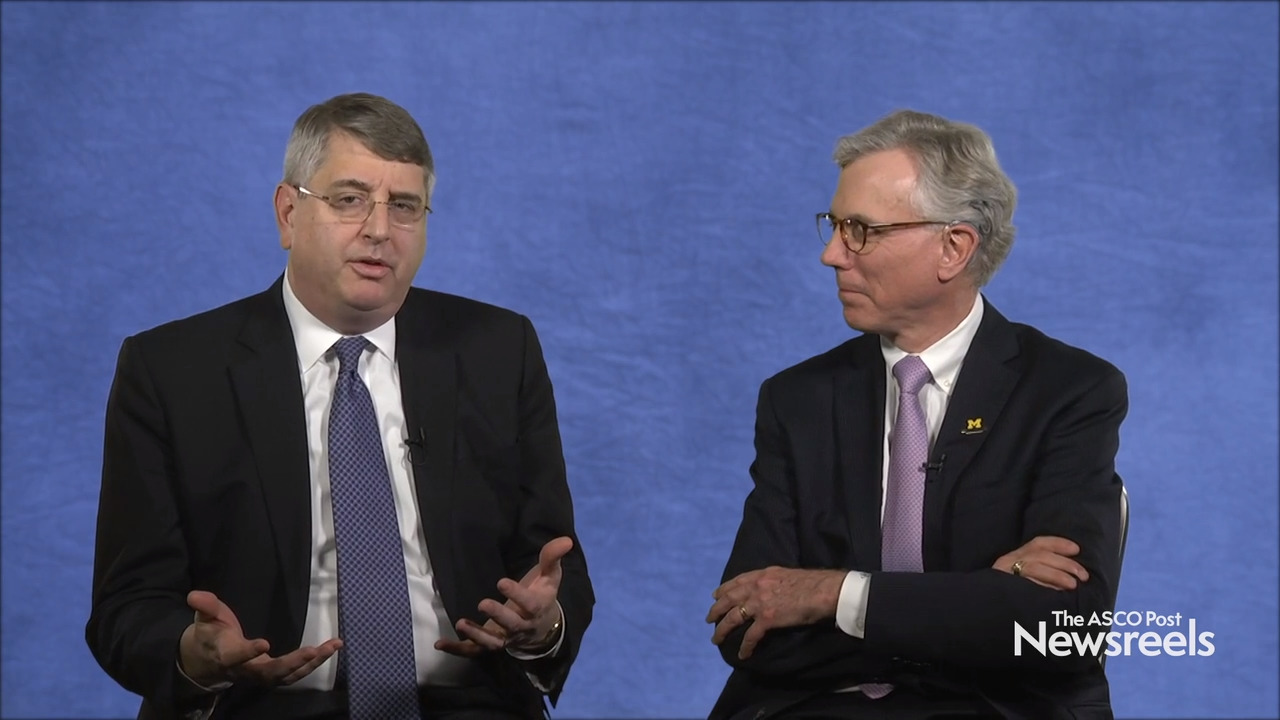Andrew D. Seidman, MD, and Charles E. Geyer, MD, on HER2-Positive Breast Cancer: Results From the KATHERINE Trial
2018 San Antonio Breast Cancer Symposium
Andrew D. Seidman, MD, of Memorial Sloan Kettering Cancer Center, and Charles E. Geyer, MD, of Virginia Commonwealth University, discuss phase III study findings on ado-trastuzumab emtansine vs trastuzumab as adjuvant therapy in patients with early HER2-positive breast cancer with residual invasive disease after neoadjuvant chemotherapy and HER2-targeted treatment (Abstract GS1-10).
Kathryn J. Ruddy, MD, MPH, of the Mayo Clinic, summarizes a special spotlight session that included discussion of interventions to improve quality of life and the importance of lifestyle in the prevention of cancer and cancer recurrence.
Zaida Morante, MD, of the Instituto Nacional de Enfermedades Neoplasicas, discusses retrospective study findings showing the importance of starting adjuvant chemotherapy for people with triple-negative breast cancer within 30 days of surgery (Abstract GS2-05).
Andrew D. Seidman, MD, of Memorial Sloan Kettering Cancer Center, and Miguel Martín, MD, PhD, of the Instituto de Investigacion Sanitaria Gregorio Marañón, discuss phase III study findings on adjuvant capecitabine after standard chemotherapy for people with early triple-negative breast cancer (Abstract GS2-04).
Shoichiro Ohtani, MD, PhD, of Hiroshima City Hiroshima Citizens Hospital, discusses study findings on extending anastrozole to 10 years, which led to higher rates of disease-free survival and distant disease–free survival (Abstract GS3-04).
Harold J. Burstein, MD, PhD, of the Dana-Farber Cancer Institute, and Daniel F. Hayes, MD, of the University of Michigan Rogel Cancer Center debate whether all women with breast cancer and positive lymph nodes should receive chemotherapy.
